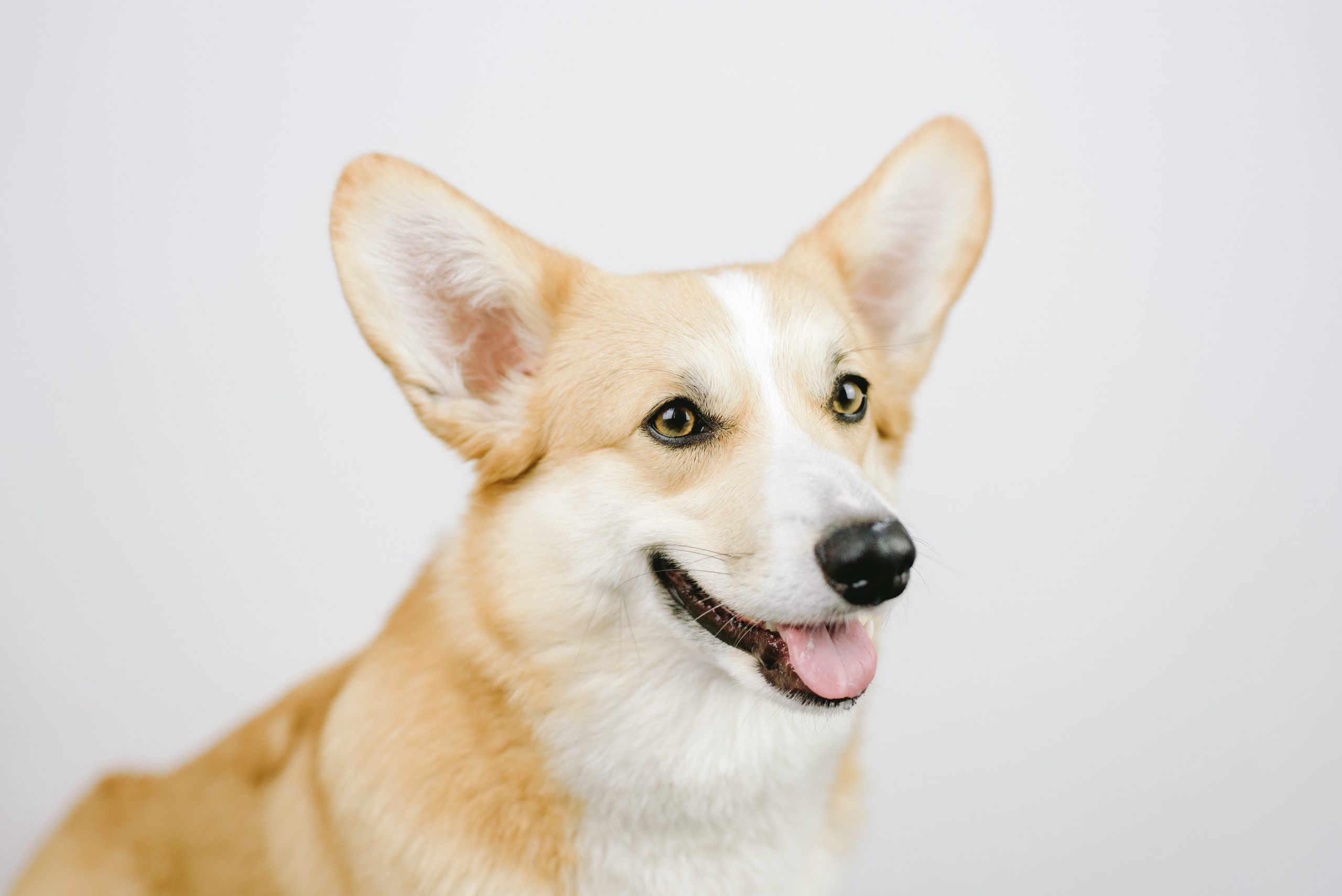
Corgis, with their stubby legs and charismatic personalities, has captured the hearts of many dog enthusiasts around the globe. As they navigate their growth journey from playful pups to mature adults, many owners wonder about the typical size trajectory for these small but sturdy canines. Whether you’re a prospective Corgi parent or simply a curious enthusiast, understanding the average weights and heights of Corgi puppies can provide insights into their health and development. In this article, we’ll delve into the growth patterns of both Pembroke and Cardigan Corgis, offering a comprehensive guide to their size milestones.
 Male Corgi Weights & Heights by Age
Male Corgi Weights & Heights by Age
The following chart contains the average weights and heights of male Corgi from newborn to 3 years of age. Please note these are only averages. Always consult with your veterinarian if you have any concerns about your Corgi’s growth.
| Age | Weight (pounds) | Weight (kg) | Height (inches) | Height (cm) |
|---|---|---|---|---|
| Newborn | 0.5 – 1.5 | 0.23 – 0.68 | 3 – 4 | 7.6 – 10.2 |
| 1 month | 5 – 7 | 2.3 – 3.2 | 5 – 6 | 12.7 – 15.2 |
| 2 months | 10 – 12 | 4.5 – 5.4 | 7 – 8 | 17.8 – 20.3 |
| 3 months | 15 – 20 | 6.8 – 9.1 | 9 – 10 | 22.9 – 25.4 |
| 4 months | 18 – 25 | 8.2 – 11.3 | 10 – 11 | 25.4 – 27.9 |
| 5 months | 20 – 28 | 9.1 – 12.7 | 10.5 – 11.5 | 26.7 – 29.2 |
| 6 months | 22 – 30 | 10 – 13.6 | 11 – 12 | 27.9 – 30.5 |
| 7 months | 23 – 31 | 10.4 – 14.1 | 11.5 – 12.5 | 29.2 – 31.8 |
| 8 months | 24 – 32 | 10.9 – 14.5 | 11.5 – 12.5 | 29.2 – 31.8 |
| 9 months | 24.5 – 32.5 | 11.1 – 14.7 | 12 – 13 | 30.5 – 33.0 |
| 10 months | 25 – 33 | 11.3 – 15 | 12 – 13 | 30.5 – 33.0 |
| 11 months | 25.5 – 33.5 | 11.6 – 15.2 | 12 – 13 | 30.5 – 33.0 |
| 12 months | 26 – 34 | 11.8 – 15.4 | 12 – 13.5 | 30.5 – 34.3 |
| 2 years | 26 – 34 | 11.8 – 15.4 | 12 – 13.5 | 30.5 – 34.3 |
| 3 years | 26 – 34 | 11.8 – 15.4 | 12 – 13.5 | 30.5 – 34.3 |
Female Corgi Weights & Heights by Age
The following chart contains the average weights and heights of a female Corgi from newborn to 3 years of age. Please note these are only averages. Always consult with your veterinarian if you have any concerns about your Corgi’s growth.
| Age | Weight (pounds) | Weight (kg) | Height (inches) | Height (cm) |
|---|---|---|---|---|
| Newborn | 0.4 – 1.4 | 0.18 – 0.64 | 2.5 – 3.5 | 6.4 – 8.9 |
| 1 month | 4 – 6 | 1.8 – 2.7 | 4.5 – 5.5 | 11.4 – 14.0 |
| 2 months | 8 – 10 | 3.6 – 4.5 | 6 – 7 | 15.2 – 17.8 |
| 3 months | 13 – 17 | 5.9 – 7.7 | 8 – 9 | 20.3 – 22.9 |
| 4 months | 16 – 22 | 7.3 – 10 | 9 – 10 | 22.9 – 25.4 |
| 5 months | 18 – 24 | 8.2 – 10.9 | 9.5 – 10.5 | 24.1 – 26.7 |
| 6 months | 20 – 26 | 9.1 – 11.8 | 10 – 11 | 25.4 – 27.9 |
| 7 months | 21 – 27 | 9.5 – 12.3 | 10.5 – 11.5 | 26.7 – 29.2 |
| 8 months | 21.5 – 27.5 | 9.8 – 12.5 | 10.5 – 11.5 | 26.7 – 29.2 |
| 9 months | 22 – 28 | 10 – 12.7 | 10.5 – 11.5 | 26.7 – 29.2 |
| 10 months | 22.5 – 28.5 | 10.2 – 12.9 | 10.5 – 11.5 | 26.7 – 29.2 |
| 11 months | 23 – 29 | 10.4 – 13.2 | 10.5 – 12 | 26.7 – 30.5 |
| 12 months | 23.5 – 30 | 10.7 – 13.6 | 10.5 – 12 | 26.7 – 30.5 |
| 2 years | 24 – 30 | 10.9 – 13.6 | 10.5 – 12 | 26.7 – 30.5 |
| 3 years | 24 – 30 | 10.9 – 13.6 | 10.5 – 12 | 26.7 – 30.5 |
These tables are based on general guidelines and can vary greatly depending on individual dogs. Always consult with a veterinarian or professional breeder for more specific information about your pet’s growth and development.
FAQs about a Corgi Puppy’s Growth and Development
1. How quickly do Corgi puppies grow?
Corgi puppies experience most of their height growth by 9-12 months, but they can continue to fill out in muscle and weight until around 18 months. However, growth rates can vary based on genetics and nutrition.
2. When do Corgis reach their full height?
Most Corgis achieve their adult height by 12 months of age. However, they may still mature and fill out in muscle and weight for several months after.
3. What’s the typical weight range for an adult Corgi?
Depending on the type (Cardigan or Pembroke) and gender, adult Corgis usually weigh between 22-38 pounds. However, individual weights can vary based on diet, activity level, and genetics.
4. How can I tell if my Corgi puppy is underweight or overweight?
An underweight Corgi might have visible ribs and a pronounced waistline. An overweight one may lack a distinct waist when viewed from above. It’s always best to consult with a vet for accurate weight assessments.
5. How much should I feed my Corgi puppy daily?
Feeding amounts vary based on age, activity level, and the type of food. Always follow the recommendations on the puppy food label and adjust based on your puppy’s condition and vet’s advice.
6. When should I transition my Corgi puppy to adult dog food?
Typically, Corgi puppies can be transitioned to adult food between 9-12 months. However, always consult with your vet to determine the right time for your specific puppy.
7. Are Corgis prone to any specific growth-related health conditions?
Due to their long backs, Corgis can be susceptible to intervertebral disc disease. A proper diet, controlled exercise, and avoiding jumping can help reduce the risk.
8. How often should I take my Corgi puppy to the vet for growth check-ups?
During the first year, regular monthly check-ups can be beneficial to monitor growth, vaccinations, and overall health. After the first year, annual check-ups are typically sufficient.
9. How do I ensure my Corgi’s joints stay healthy during rapid growth phases?
Feed them high-quality puppy food, engage them in moderate, controlled exercise, and consider joint supplements after discussing with your vet.
10. Are Corgi puppies’ large ears an indication of their final size? Not necessarily. While Corgi puppies do have notably large ears, they don’t correlate directly with their final size. Puppies will grow into their ears as they mature.
11. Do Corgi puppies experience teething?
Yes, like all puppies, Corgis go through a teething phase, typically between 3-7 months of age. Providing chew toys can help soothe their gums.
12. How long do Corgi puppies sleep each day?
Puppies, including Corgis, often sleep up to 18-20 hours a day. This rest is essential for their growth and development.
13. Is my Corgi’s growth spurt causing increased appetite?
It’s common for puppies to have an increased appetite during growth spurts. Always feed them high-quality food and monitor to ensure they’re not becoming overweight.
14. Can excessive exercise harm my growing Corgi?
Yes, too much strenuous exercise can stress their developing joints and bones. Short, frequent play sessions are better than prolonged rigorous activity.
15. Why does my Corgi puppy’s coat seem to be changing colors?
Corgi coat colors can change or deepen as they mature. This is a natural process, often influenced by genetics.
16. How do growth rates differ between Pembroke and Cardigan Corgis?
While both breeds have similar growth rates, Cardigans tend to be slightly larger and might reach their adult size a bit later than Pembrokes.
17. What’s the average lifespan of a Corgi?
Corgis generally live between 12-15 years. Proper care, nutrition, and regular vet visits can contribute to a long and healthy life.
18. My Corgi puppy seems small for his age. Should I be concerned?
While there are breed averages, individual growth can vary. Always consult with your vet to ensure your puppy is growing at a healthy rate and receiving proper nutrition.
19. Are growth supplements necessary for my Corgi puppy?
Most puppies get the necessary nutrients from high-quality puppy food. Before giving any supplements, always discuss with your veterinarian.
20. Will neutering or spaying my Corgi affect its growth?
Neutering or spaying can influence a dog’s metabolic rate and potential weight gain. However, the procedure itself doesn’t typically impact growth. Always discuss the best time to neuter or spay with your vet.
- CBD for Corgis: What You Need to Know
- Best Supplements for a Senior Corgi
- Best Flea & Tick Products for Corgis
- Best Online Dog Training Courses for Corgi
- Best Hip & Joint Supplement for a Corgi
- What Supplements Should I Give a Corgi Puppy?
- The 9 Best Corgi Puppy Foods
- Best Dog Beds for Corgis
- Improve Your Corgi's Skin & Coat with This One Hack
- Giving This to Your Corgi Daily Can Alleviate Itchy Allergies
- 6 Natural Ingredients to Fight Your Corgi's Allergies
- 8 Ways to Stop Your Corgi's Scratching
- 7 Ways to Calm Your Corgi's Anxiety
- 6 Remedies for Your Corgi's Diarrhea, Gas, or Vomiting
- 7 Best Dental Chews for a Corgi
The post Male & Female Corgi Weights & Heights by Age appeared first on iHeartDogs.com.
via Whisker Therapy